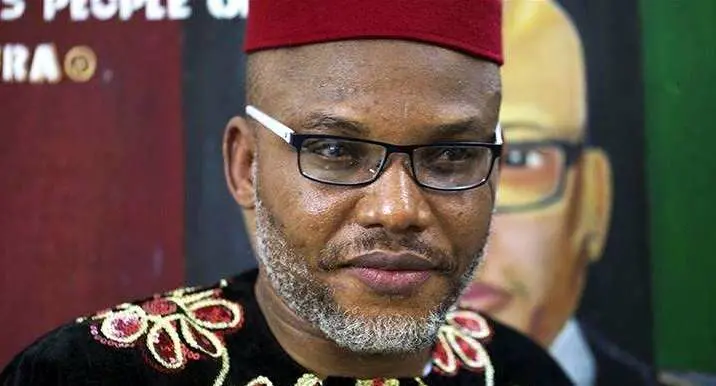Africa
Kanu’s Life Sentence and Nigeria’s Dangerous Comfort With Crisis -By Abdulazeez Toheeb Olawale
We must be clear: this country does not need more confrontations. It needs clarity, dialogue, strategic thinking, and peace. The responsibility now lies with the government to de-escalate tensions, engage with regional stakeholders, and ensure this verdict does not plunge the nation into fresh cycles of violence.

Nigeria has entered yet another familiar storm.
With the sentencing of Nnamdi Kanu to life imprisonment, the Federal Government may believe it has “resolved” a national problem. In reality, it has simply thrown more fuel into a fire it has never truly attempted to extinguish.
For nearly a decade, the Kanu question has been a symbol of deeper fractures—political exclusion, ethnic suspicion, police brutality, and an entire region convinced it is treated as an afterthought in the Nigerian equation. Yet the government continues to approach the matter like a simple crime to be punished rather than a national wound requiring healing.
Kanu may have his faults. IPOB may have its excesses. But leaders must understand a basic truth of governance: you do not stabilise a fragile state by provoking the emotions of millions. Nigeria is already battling record food inflation, insecurity, unemployment, and a collapsing public trust. This is not a country that can afford any additional tension—yet the government keeps manufacturing fresh ones.
The optics of this judgment are even more troubling. A sensitive national case, rushed to conclusion after the defendant dismissed his legal team, with arguments hinging on repealed laws? It does not matter whether the court followed procedure; what matters is how this decision lands in a region where suspicion of the centre runs high. Justice must not only be done — it must be seen, felt, and believed by all sides.
Predictably, the Southeast is on edge. IPOB has rejected the ruling. Local leaders are warning of unrest. Security agencies have tightened operations. This is what happens when legal decisions are taken without political foresight or national empathy.
Nigeria needs leadership that understands timing, sensitivity, and the psychology of a divided people. Instead, it keeps receiving leadership that behaves as though governance is a series of strong-arm victories.
We must be clear: this country does not need more confrontations. It needs clarity, dialogue, strategic thinking, and peace. The responsibility now lies with the government to de-escalate tensions, engage with regional stakeholders, and ensure this verdict does not plunge the nation into fresh cycles of violence.
The Kanu sentence may close a courtroom chapter, but it opens a wider national one.
How the government chooses to handle the next days and weeks will determine whether Nigeria steps toward stability — or slips further into preventable chaos.
























